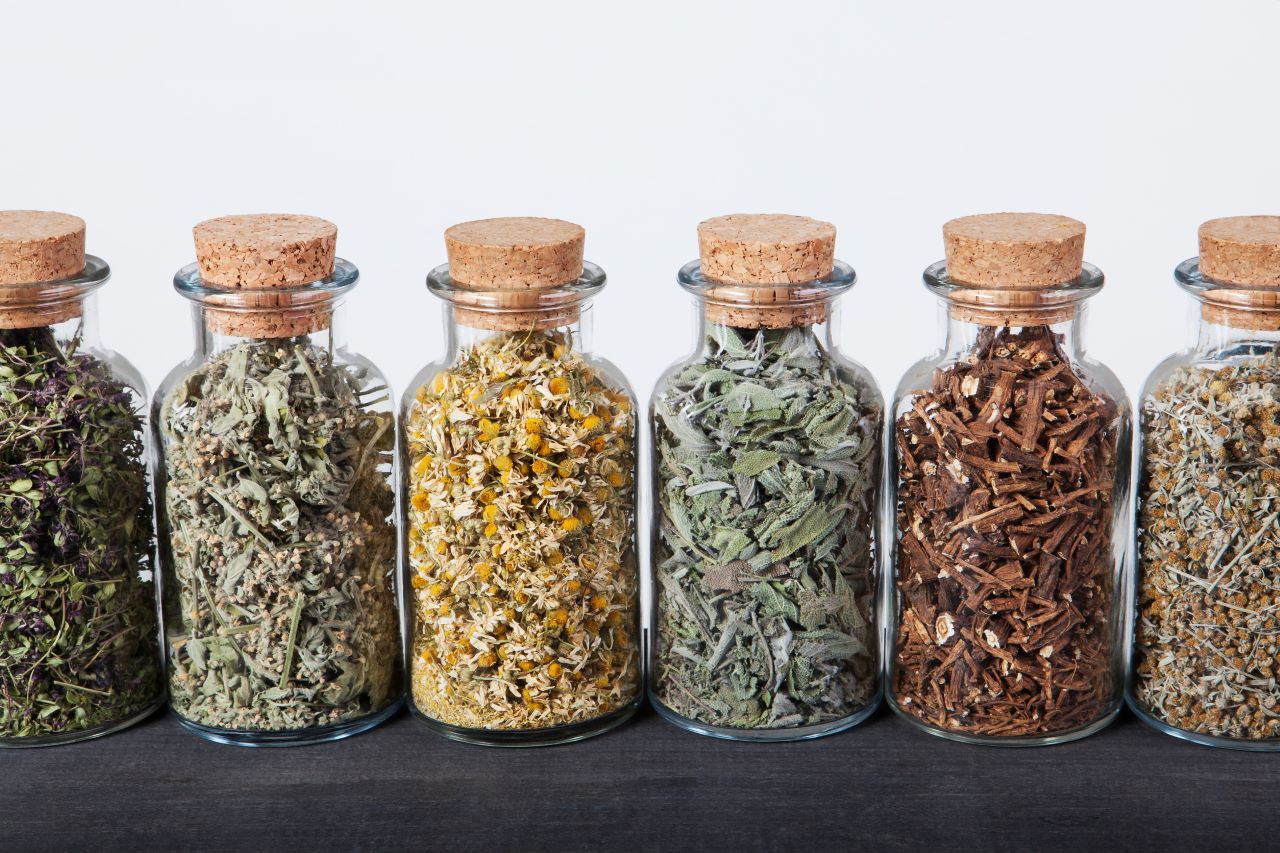Effectiveness of Popular Herbs (Part 2)
Welcome back to our exploration of herbal effectiveness. Let’s continue with the efficacy of five more herbs…
- St. John’s Wort – Known for its use in treating depression.
- Peppermint – Used for digestive problems, including irritable bowel syndrome (IBS).
- Chamomile – Often used for its calming effects and as a sleep aid.
- Lavender – Known for its anti-anxiety properties and helping with sleep.
- Cinnamon – Used for its potential effects on blood sugar levels and inflammation.
In Part 1, we discussed the benefits and scientific support behind five well-known herbs: Echinacea, Ginseng, Ginkgo Biloba, Turmeric, and Ginger. See herbs 1-5 here.

From mental health support to digestive relief, all of these herbs have been treasured for their therapeutic potential.
Herbal Effectiveness (Part 2)
6. St. John’s Wort
St. John’s Wort (Hypericum perforatum) is renowned for its use in treating mild to moderate depression.
Seeing that, several studies have supported its effectiveness. It is often compared favorably to standard antidepressants.
The herb contains active compounds like hypericin and hyperforin. These are believed to influence neurotransmitter activity in the brain, such as serotonin, dopamine, and norepinephrine.
However, it’s crucial to note that St. John’s Wort can interact with various medications, including antidepressants, birth control pills, and blood thinners. This can potentially reduce their effectiveness or causing adverse effects.
→ Conclusion
St. John’s Wort shows promise in treating mild to moderate depression, but due to its potential interactions with other medications, it should be used under medical supervision.
.
Check out the herbal supplement here.
7. Peppermint
Peppermint (Mentha piperita) is widely used to alleviate digestive problems, particularly irritable bowel syndrome (IBS).
The key active component, menthol, has antispasmodic properties that can relax the muscles of the gastrointestinal tract. The result reduces symptoms like bloating, gas, and abdominal pain.
Clinical trials have demonstrated that peppermint oil, taken in enteric-coated capsules, can significantly improve IBS symptoms compared to a placebo.
.
Additionally, peppermint tea is a popular remedy for general digestive discomfort.
While generally safe, high doses of peppermint oil can cause heartburn and should be used with caution.
→ Conclusion
Peppermint, especially in oil form, is effective in relieving IBS symptoms and general digestive discomfort, making it a valuable natural remedy for gastrointestinal issues.
.
Check out the herbal supplement here.
8. The Herbal Effectiveness of Chamomile
Chamomile (Matricaria chamomilla) is cherished for its calming effects and is often used as a natural sleep aid.
The herb contains apigenin, an antioxidant that binds to certain receptors in the brain that promote sleep and reduce anxiety.
Research has shown that chamomile extract can significantly improve sleep quality in people suffering from insomnia and anxiety.
In view of this, Chamomile tea is a popular bedtime ritual that can help promote relaxation and better sleep.
Although generally safe, some individuals may be allergic to chamomile, particularly those sensitive to plants in the daisy family.
→ Conclusion
Chamomile is a well-supported natural remedy for improving sleep and reducing anxiety, with a long history of safe use for most people.
.
Check out the herbal supplement here.
9. Lavender
Lavender (Lavandula angustifolia) is well-known for its anti-anxiety properties and its ability to aid sleep.
The herb’s calming effects are attributed to its aromatic compounds, particularly linalool and linalyl acetate. These can have a sedative effect when inhaled or applied topically.
Studies have shown that lavender oil can reduce anxiety levels in various settings, including dental procedures and pre-surgical contexts.
Additionally, lavender aromatherapy has been found to improve sleep quality. While lavender is generally safe, essential oils should be used with care. This is because they can cause skin irritation or allergic reactions in some people.
→ Conclusion
Lavender is effective in reducing anxiety and improving sleep quality, making it a versatile and gentle remedy for stress and insomnia.
.
Check out the herbal oil here.
The Herbal Effectiveness of Cinnamon
Cinnamon (Cinnamomum verum) is frequently used for its potential benefits in regulating blood sugar levels and reducing inflammation.
Research suggests that cinnamon can improve insulin sensitivity and lower blood sugar levels. This makes it a useful supplement for managing type 2 diabetes.
The anti-inflammatory properties of cinnamon are attributed to its high concentration of antioxidants, such as polyphenols.
These properties may help reduce the risk of chronic diseases linked to inflammation, such as heart disease.
However, it’s important to use Ceylon cinnamon rather than cassia cinnamon, as the latter contains higher levels of coumarin, which can be harmful in large amounts.
→ Conclusion
Cinnamon has promising benefits for blood sugar regulation and inflammation reduction, but choosing the right type (Ceylon) is crucial for safe and effective use.
.
Check out the herbal supplement here.
Herbal Effectiveness of 10 Natural Remedies
In our two-part series on the effectiveness of these popular herbs, we have explored a variety of natural remedies that have been used for centuries to support health and well-being.
In Part 1, we discussed Echinacea, Ginseng, Ginkgo Biloba, Turmeric, and Ginger, highlighting their roles in boosting immunity, enhancing cognitive function, and reducing inflammation.
In this case, we examined St. John’s Wort, Peppermint, Chamomile, Lavender, and Cinnamon, focusing on their benefits for mental health, digestive health, sleep, and blood sugar regulation.
While these herbs show great promise, it’s essential to use them wisely and consult healthcare professionals when necessary.
Now that you have an understanding of the science behind these ten natural remedies, you can make informed decisions to improve your health naturally.
